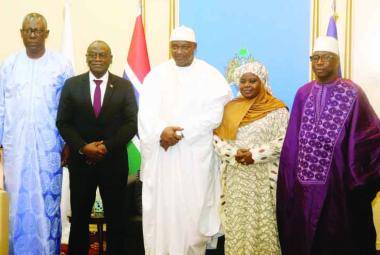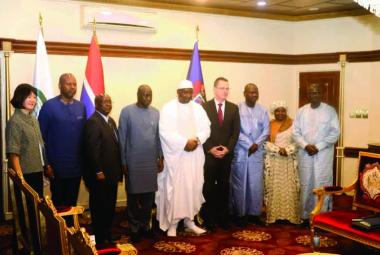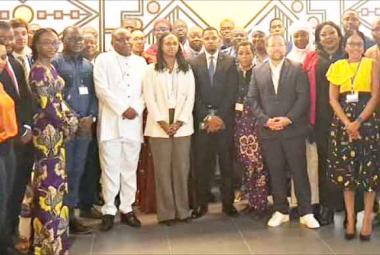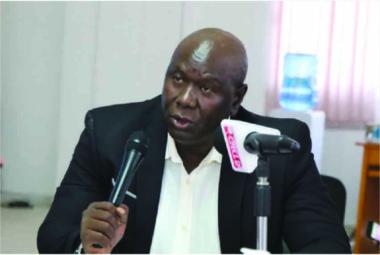By Fatou B. Cham
The officials of the Resilience of Organisations for Transformative Smallholder Agriculture (ROOTS) project recently held a review workshop on the feasibility study for irrigated rice land development.
During the opening ceremony, the Project Director, ROOTS Project, Mamour Alieu Jagne had this to say: “To ensure that the investment lasts and is also of utility to farmers at the end of the day the ROOTS will improve the livelihood of farmers; specifically those working in the horticulture and rice value chain.”
Mod A.K Secka, Permanent Secretary at the Ministry of Agriculture reminded the gathering that the ROOTS project is one of the flagship interventions of the Ministry of Agriculture, whose objective is to improve production and access to markets for rice and vegetable, working with smallholders in a sustainable manner.
He made reference to the successful rice input support programme by ROOTS, which he said is already making significant contributions to the national drive towards rice self-sufficiency.
He explained that the feasibility study would cover a total of 24 sites across the country, involving all types of rice irrigation-dykes and micro-catchment areas, tidal irrigation, and pump irrigation. The total area is estimated at just over 2,000 hectares.
The Director General of Gamworks, Mr Omar Gai, said they are assisting the project from a technical angle - the infrastructural component. “We were engaged since last year to provide technical assistance for the next three years to make sure that the project is successfully implemented,” he added.
He revealed that Gamworks has collaborated with Senegalese experts to make sure that they provide the expected technical guidance for the project to be successful.
Peter Baldeh, President of the National Rice Farmers Association, pointed to the significance of land development for improved rice production in the country.
He commended ROOTS for empowering rice farmers in the country. “They have supported with inputs and provided ploughing services”.
Mr Baldeh pointed out the need to enhance stakeholder identification and implement best practices if they must attain rice self-sufficiency.
He further stressed that access to finance and land for the women and youths is also a major concern.






